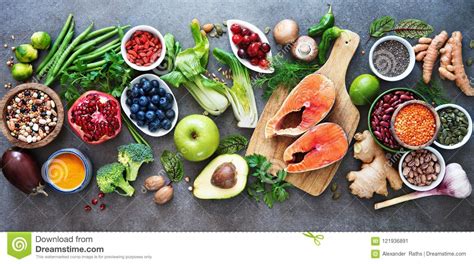How to maximize testosterone naturally for strength, energy, and overall male performance?

Testosterone, often dubbed the primary male hormone, plays a pivotal role far beyond just sex drive. It’s crucial for muscle growth, bone density, red blood cell production, mood regulation, and energy levels. While synthetic interventions exist, many men are seeking natural, sustainable ways to optimize their testosterone for peak physical and mental performance. This article delves into science-backed strategies to naturally maximize your testosterone, empowering you to unlock greater strength, boundless energy, and improved overall male vitality.

The Foundation: Diet and Nutrition
What you eat directly impacts your hormone production. A diet rich in whole, unprocessed foods is fundamental for optimal testosterone levels.
Prioritize Healthy Fats
Cholesterol is a precursor to testosterone. Don’t shy away from healthy fats found in avocados, nuts, seeds, olive oil, and fatty fish like salmon. Saturated fats in moderation from sources like red meat can also be beneficial, but focus on the unsaturated variety for heart health.
Consume Adequate Protein
Protein is essential for muscle repair and growth, which indirectly supports testosterone. Aim for lean protein sources such as chicken breast, turkey, eggs, fish, and plant-based options like lentils and beans.
Don’t Forget Carbohydrates
While low-carb diets have their place, extremely restrictive carbohydrate intake can sometimes elevate cortisol (stress hormone) and suppress testosterone. Complex carbohydrates from whole grains, fruits, and vegetables provide the energy needed for workouts and recovery without spiking blood sugar.
Micronutrients Matter: Zinc and Vitamin D
Two micronutrients stand out for their direct link to testosterone production. Zinc is a vital mineral, and deficiencies can lead to reduced T-levels. Foods like oysters, red meat, poultry, and beans are excellent sources. Vitamin D, often called the “sunshine vitamin,” functions as a steroid hormone in the body and is strongly associated with testosterone levels. Spend time in the sun, or consider a high-quality supplement, especially in winter months.
Exercise Smarter, Not Just Harder
Regular physical activity is a cornerstone of a healthy lifestyle, and specific types of exercise are particularly effective for boosting testosterone.
Strength Training is Key
Lifting weights, especially compound movements that engage multiple muscle groups (e.g., squats, deadlifts, bench presses, rows), has been consistently shown to increase testosterone. Focus on progressive overload – gradually increasing the weight or resistance over time – to stimulate maximum hormonal response.

High-Intensity Interval Training (HIIT)
Short bursts of intense exercise followed by brief recovery periods can also effectively elevate testosterone and growth hormone. Incorporate sprints, battle ropes, or kettlebell swings into your routine. However, avoid chronic, excessive endurance training, which can sometimes suppress testosterone.
Prioritize Rest and Recovery
Your body produces testosterone and recovers during periods of rest, particularly sleep.
Get Quality Sleep
Insufficient sleep is a common culprit for low testosterone. Aim for 7-9 hours of high-quality sleep per night. Create a consistent sleep schedule, ensure your bedroom is dark and cool, and avoid screens before bed to optimize melatonin production, which indirectly supports hormone balance.

Manage Stress Effectively
Chronic stress leads to elevated cortisol levels. High cortisol directly inhibits testosterone production. Incorporate stress-reduction techniques into your daily life, such as meditation, yoga, deep breathing exercises, spending time in nature, or engaging in hobbies you enjoy.
Lifestyle Choices and Environmental Factors
Beyond diet, exercise, and sleep, other daily habits and environmental exposures can influence your testosterone.
Limit Alcohol Consumption
Excessive alcohol intake can impair testosterone production and increase its conversion to estrogen. Moderate consumption, if any, is advisable.
Avoid Endocrine Disruptors
Certain chemicals found in plastics (BPA, phthalates), pesticides, and cosmetics can mimic hormones or interfere with natural hormone function. Opt for glass containers, choose organic produce when possible, and be mindful of ingredients in personal care products.

Maintain a Healthy Weight
Obesity, particularly abdominal fat, is strongly linked to lower testosterone levels and increased estrogen. Losing excess weight through diet and exercise is one of the most effective ways to improve T-levels.
The Synergistic Approach
No single strategy will dramatically increase testosterone on its own. The real power lies in the synergistic effect of integrating all these elements into a consistent, healthy lifestyle. Think of it as a holistic system where diet, exercise, sleep, stress management, and mindful choices all work together to create an optimal hormonal environment.

Conclusion
Maximizing testosterone naturally is an ongoing journey of mindful choices and consistent effort. By adopting a nutrient-rich diet, engaging in strategic exercise, prioritizing restorative sleep, effectively managing stress, and making conscious lifestyle decisions, you can significantly enhance your body’s natural ability to produce testosterone. The rewards extend beyond just strength and energy; they encompass improved mood, cognitive function, and an overall elevated quality of life, empowering you to perform at your peak.









